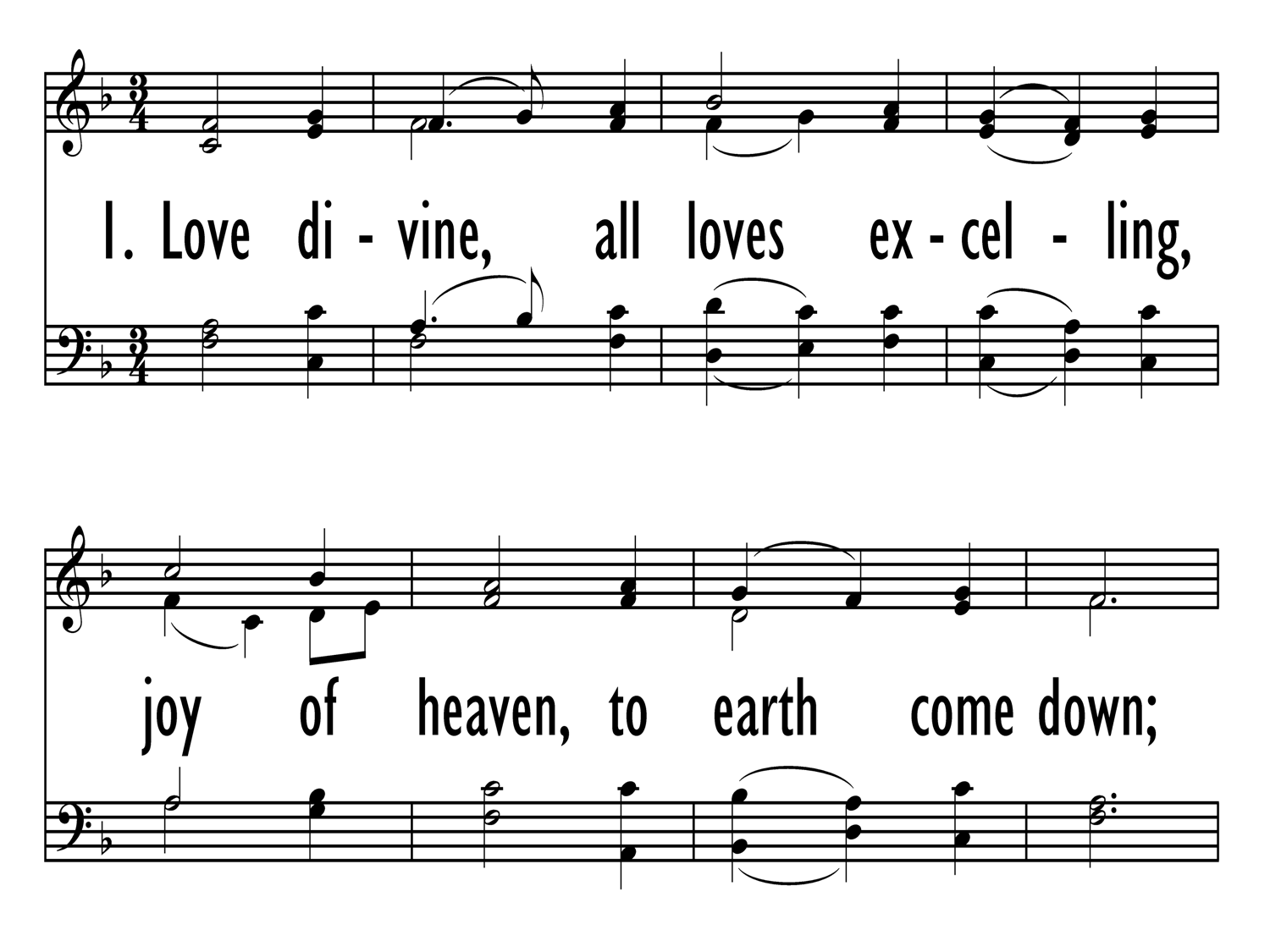- |
User Links
Love Divine, All Loves Excelling
Hymn Information
- First Line
- Love divine, all loves excelling
- Author
- Charles Wesley (1747)
- Tune Name
- HYFRYDOL
- Composer
- Rowland H. Prichard (1831)
- Topic
- Church Year: Advent · Eternal Life · Holy Spirit · Jesus Christ: Second Coming · Hymns That Are Prayer · Walk with God
Copyright Information
- Text Copyright
- Public Domain
- Tune Copyright
- Public Domain
- Reprint/Projection Information
- Words and Music: The Words and Music are in the Public Domain; you do not need permission to project or reprint the Words and Music.
Full Text
Scripture References
Thematically related:
- st. 1 = · ·
- st. 2 =
- st. 3 = · ·
Further Reflections on Scripture References
Addressed to Christ, this text begins as a prayer for the indwelling of his love in our lives: "fix in us thy humble dwelling" and "let us all thy life receive" (st. 1-2). A tone of praise and adoration runs throughout the text. But the final stanza is clearly a prayer for sanctification, for consistently holy lives. Though this stanza was an outcome of the Specifically Wesleyan doctrine of perfection, it is our fervent Christian prayer that our sanctification will ultimately lead to glorification. As is customary in a Charles Wesley text, biblical allusions abound.
Psalter Hymnal Handbook
Confessions and Statements of Faith References
Further Reflections on Confessions and Statements of Faith References
Full of praise, this song reaches a crescendo of hope in stanza 4 when it prays that Christ will come and “finish, then, thy new creation; pure and spotless let us be...” This hope of final perfection is expressed beautifully in a number of confessions. Belgic Confession, Article 37 says that when Christ returns, “The faithful and elect will be crowned with glory and honor” and “the Lord will make them possess a glory such as the human heart could never imagine... So we look forward to that great day with longing in order to fully enjoy the promises of God in Jesus Christ our Lord.”
Even more pointedly, Our World Belongs to God, paragraph 56 professes, “We long for that day when our bodies are raised, the Lord wipes away our tears, and we dwell forever in the presence of God. We will take our place in the new creation, where there will be no more death or mourning or crying or pain, and the Lord will be our light.”
Love Divine, All Loves Excelling
Call to Worship
Assurance
Love Divine, All Loves Excelling
Tune Information
- Name
- HYFRYDOL
- Key
- F Major
- Meter
- 8.7.8.7 D


 My Starred Hymns
My Starred Hymns






